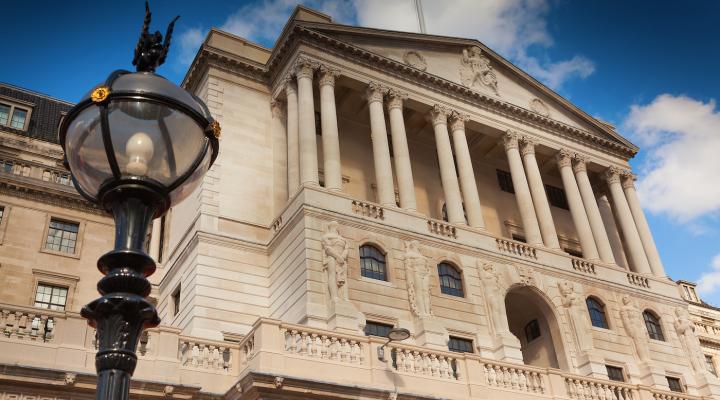Why Investors Should Pay Attention to a U.K. Central Banker's Words

In the early hours of this morning, some news broke that will probably have been missed by most investors but the market reaction to it could be the most significant thing to have happened in and around the stock market for a long time. The reaction, or rather, the lack of one in bond and equity markets, to comments made by a prominent U.K. central banker has massive implications.
Gertjan Vlieghe, a member of the Bank of England's (BoE) Monetary Policy Committee, said in a speech to the University of Bath that he believed that if the job support program known as the “furlough scheme” unwinds without major disruption to the employment market, interest rate hikes there could come as soon as early next year. That is a departure from the orthodoxy of not just the BoE, but of major central banks around the world who have, until now, maintained that current conditions will remain at least until 2023.
And yet, markets yawned. Even what should be the most directly affected markets, U.K. government bonds and U.S. Treasuries (given that they are following similar policies), moved extraordinarily little. The U.K. 10-Year climbed around four basis points (0.04%) after the text of the speech was released by the BoE, with its American equivalent adding around three basis points. Even more surprising was the indifference of equity traders, where the news barely registered.
All of this points to a positive attitude that will protect against violent swings in the future. There has been a lot of speculation about moves in anticipation of Jerome Powell’s August address to the Jackson Hole meeting of central bankers, when he is widely expected to start talking about plans for returning to a more normal monetary policy stance, and market insiders are already looking forward to that day with some trepidation. It would be reasonable to expect, then, that any hint from a central banker anywhere that the timetable of winding down QE and raising rates may be accelerated would produce an outsized reaction.
There are two possible reasons that it didn’t.
The first is that gradual rate hikes are already priced in to some extent, and the second is that traders just don’t believe they will happen, no matter what Vlieghe says. Either way, it hints at strength in the stock market in the coming months when faced with the reality of a policy shift here in the U.S.
It might sound like I am trying to make a mountain out of a molehill here, but traders will not have missed this, and their indifference to it hints at a surprising degree of confidence. Now, you might also say, that rate hikes in early 2023 is just one man’s opinion, and even then, this is the opinion of someone who won’t even be around next year because his term at the BoE ends this August. So, why should we care? That would be a fair question, were it not for the fact that this is, in effect, the first official “taper talk” we have heard from a central banker, but the markets barely reacted. When you look back to the so-called “taper tantrum” of 2013, when yields jumped and the market dropped dramatically on talk of winding down QE and maybe raising rates, the fact that this is a non-event is extremely telling.
There are times when even I think I am way too much of a monetary policy wonk, but this stuff is important. It makes an ordered exit from pandemic-era policies look just a little more possible. That may not sound like a big deal but it is, and should inspire confidence in investors throughout the summer.
Do you want more of Martin? If you are familiar with Martin’s work, you will know that he brings a unique perspective to markets and actionable ideas based on that perspective. In addition to writing here, Martin also writes a free weekly newsletter with in-depth analysis and trade ideas focused on just one recently underperforming sector that is bouncing fast. To find out more and sign up for the free newsletter, just click here.
The views and opinions expressed herein are the views and opinions of the author and do not necessarily reflect those of Nasdaq, Inc.
